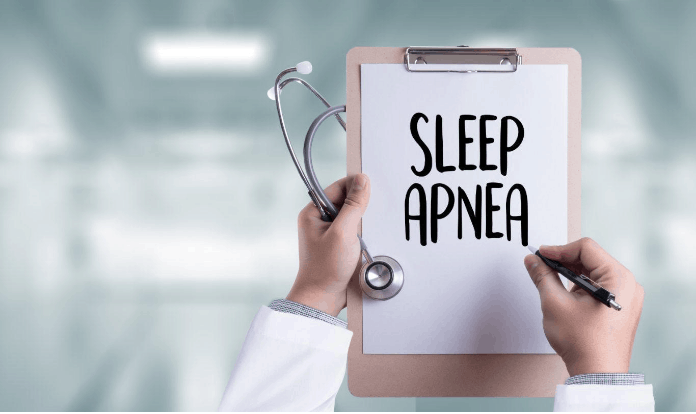Sleep Apnea is a disorder where muscles and tissues in your airway relax during sleep and block off the airway. This interrupts your breathing, sometimes for up to 10 seconds at a time, multiple times during the night.
With sleep apnea, you don’t get enough oxygen while you sleep and this can lead to serious health risks such as high blood pressure and even stroke. Sleep apnea often sounds like snoring and the person may not even be aware that they have the condition.
Symptoms of sleep apnea include daytime sleepiness, teeth grinding, and snoring. Your dental clinic in Guelph may be able to help you identify your symptoms. If you think you have sleep apnea, it is important to have your doctor do a sleep study to get an accurate measure of your breathing so they can find the right treatment.
Treatment Options
There is no one cure for sleep apnea, but there are many treatment options available. These include:
- Losing Weight
The link between weight loss and sleep apnea is well established. Overweight people are more likely to have excess tissue in the back of their throat which can block their airway when they sleep. Losing just 10% of your body weight can lead to a huge reduction in sleep apnea symptoms. Weight also helps with other serious health issues linked to sleep apnea, such as heart disease and stress.
- CPAP Machines
Continuous Positive Airway Pressure Machines (or CPAP machines) are the main treatment option for people with sleep apnea. The machine blows humidified air through a mask into the nose, which creates continuous air pressure to keep the tissues in the throat open when you are sleeping.
CPAP machines are very effective at treating sleep apnea and patients often see lowered blood pressure, more wakefulness during the day and improved quality of life.
- Breathing Devices
If your sleep apnea is less severe, your doctor may recommend other devices to help your breathing. An oral appliance is a plastic insert that is custom made to fit your mouth and prevents your tongue and tissues from collapsing when you sleep.
- Sleep Position
Sleep position can have an effect on your sleep apnea symptoms. Sleeping on your back (also called supine position) increases snoring and can block your airways. Some patients find sleeping on their side helps reduce their symptoms.
- Avoiding Alcohol and Smoking
Lifestyle choices such as smoking and drinking alcohol affect the severity of sleep apnea. Drinking alcohol can relax your throat muscles when you are sleeping, this leads to snoring and complications from sleep apnea. Alcohol also causes inflammation in your tissues, which can result in blocked airflow.
Tobacco also increases inflammation in the throat muscles and tissues. Studies have linked smoking with an increased risk for sleep apnea, and even more, sleep apnea may be a contributing factor in nicotine addiction. Many treatment plans include treating sleep apnea as a part of treating nicotine addiction.
- Surgery
Surgery is often the last option for treating sleep apnea. With this treatment, the surgeon removes excess tissue from the palate and throat. According to an Etobicoke Emergency Dentist, there are many side effects associated with surgery so it should only be used as a last resort.
There are many ways to treat sleep apnea, but there is no cure for it and it is important to find the right fit for you. If you think you have sleep apnea, it is important to be referred for a sleep study. Talk to your dentist for a recommendation.






